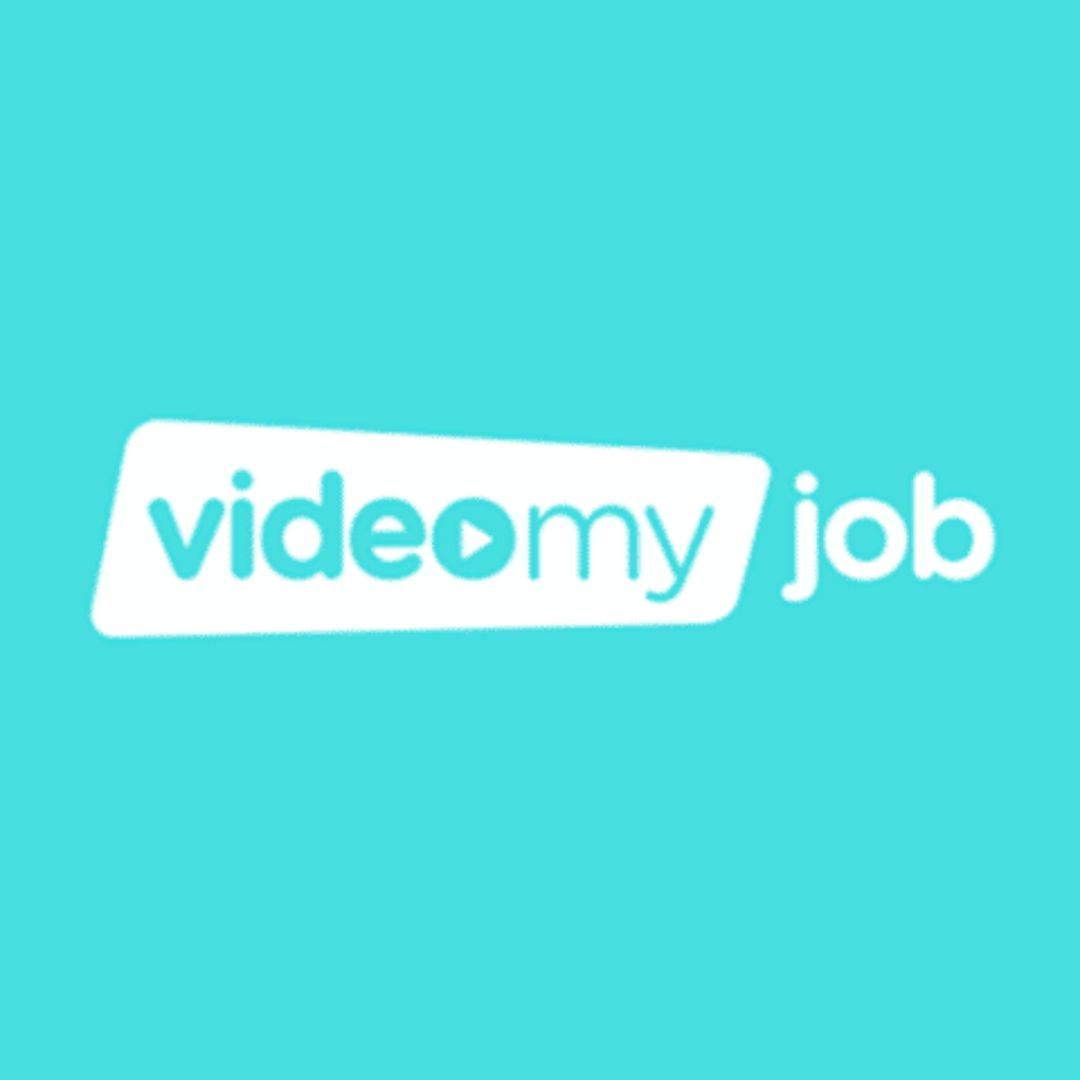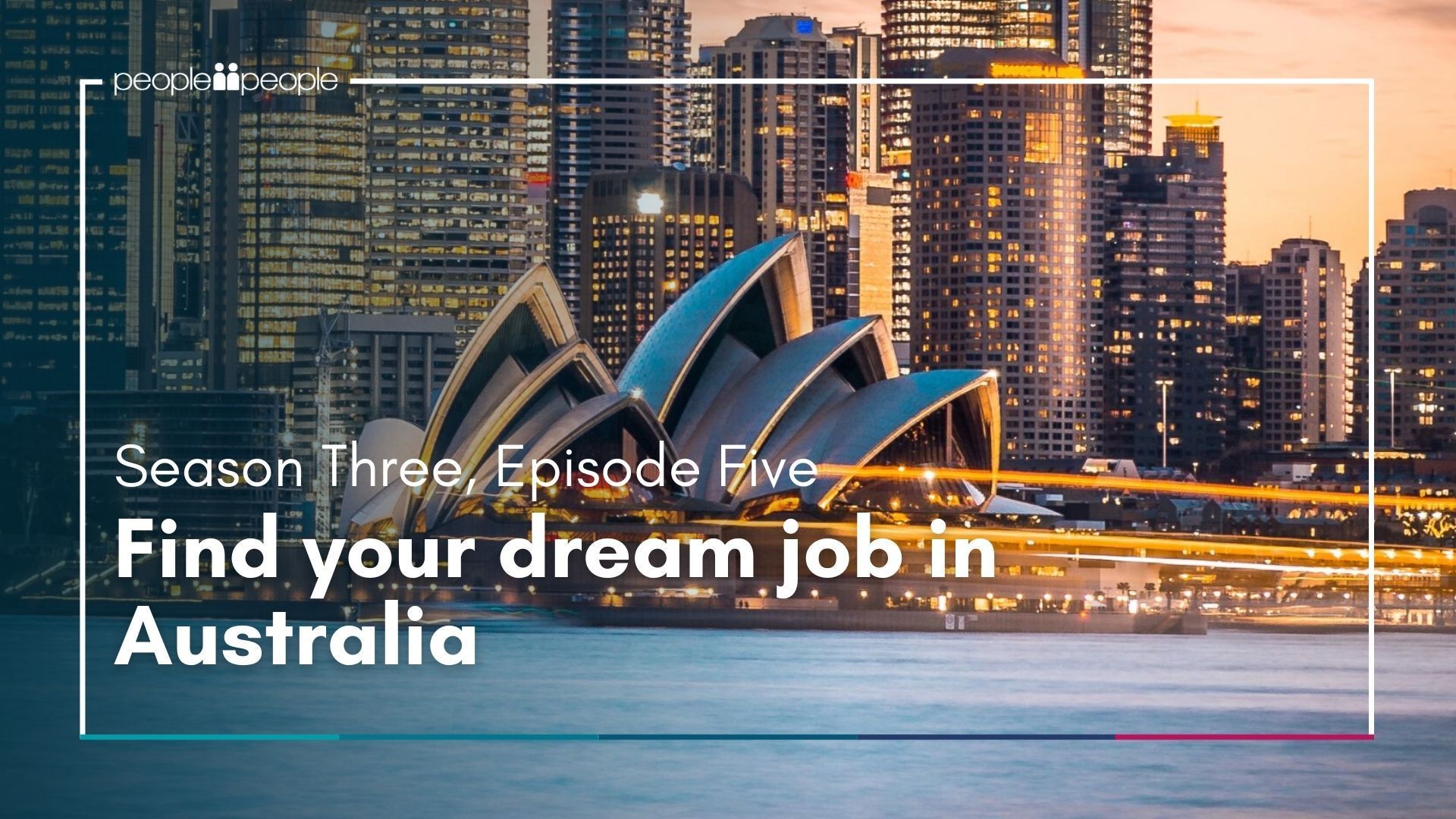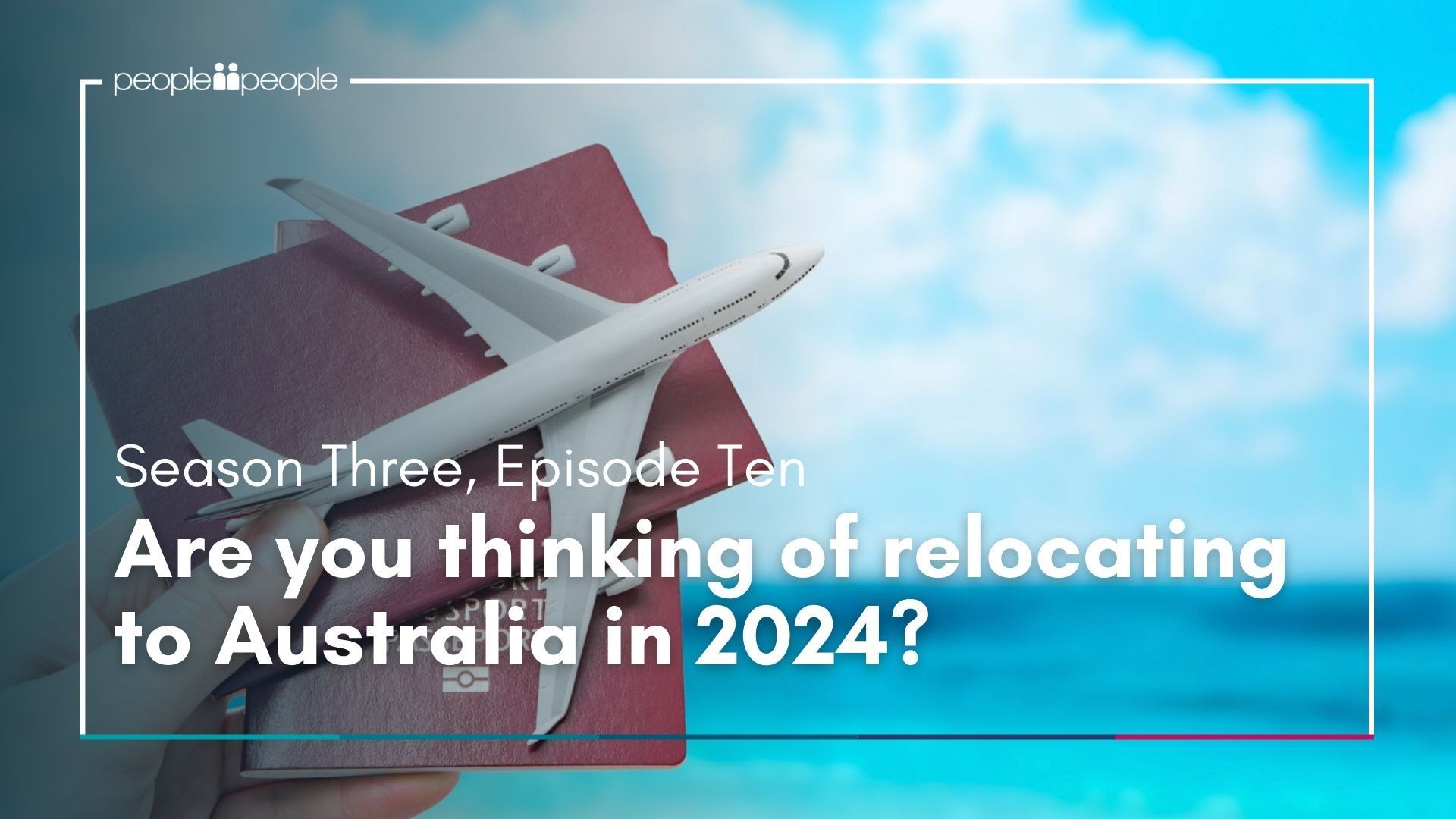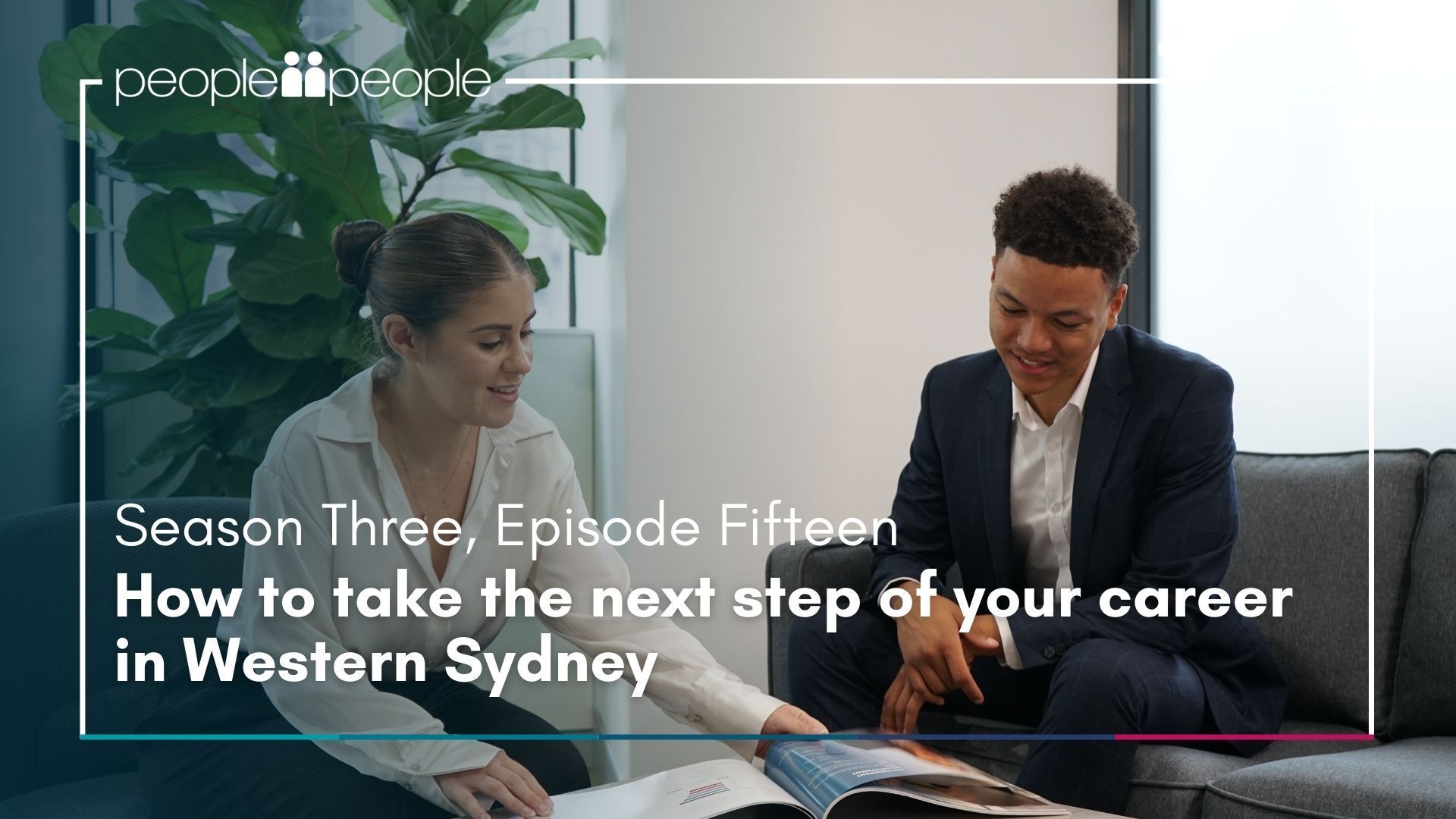How are videos changing the recruitment journey? Insights with Video My Job
Kirsten: So, as I said in my intro, I'm very happy to have David Macciocca, the CEO and founder of Video My Job joining us today. Thank you, David. We're very excited to get an insight into the platform and have a chance to talk to you about the impact that Video My Job is making. As I mentioned to you offline before we started, I'm an advocate. I jump in front of the camera ideally once a week, and it is a tool that I use in my recruitment. So, for those who don't know, can you tell us a little bit about Video My Job and how the idea came about?
David: Sure. Thanks for the introduction. Video My Job is really solving a significant problem where companies struggle to communicate what it's really like to work within a company. Culture is hard to communicate. Video My Job does that really well through our video solution for recruitment agencies and in-house talent teams. The idea came about when I was in recruitment for quite some time. I had an agency that we sold, and part of our success was creating a video for each job that came through. So in 2013, we turned the meeting room into a studio and recorded everything manually. Our digital footprint went through the roof, and that led to an acquisition in 2015. I thought everyone should recruit this way and put together a team in Australia. Fast forward to today, we're in over 50 countries, representing some of the world's biggest companies and amazing recruitment agencies like People2People.
Kirsten: Yeah, well, that is an amazing journey. It's a bit of an overused word, but wow, it's certainly making an impact. People2People, as you said, does partner with Video My Job and has done so for a few years now. Our team of recruiters has created over 5,200 videos to assist in hiring, placing candidates, and connecting with a range of different people and industries. How has the introduction of video throughout the recruitment process changed the industry or the way both recruiters and in-house teams work for the better over the last couple of years?
David: That's a really good question. If we think about pre- and post-COVID, before COVID, people were really uncomfortable on video. Some still are today, but it was definitely more of a problem before COVID. One thing COVID did was push people to use video more because they couldn't get to the office. People became more comfortable with how they look and sound on video, and it became the norm. Today, the use case has evolved from 100% video job ads to more employee stories. Now, only 18% are video job ads, and people are using video to communicate more effectively. The barrier to creating a video now comes down to time and strategy. Recruiters are juggling many different requirements, and it can be challenging in environments where leadership isn't strong enough to support the use of video. However, the upside is significant, with cost reductions, time savings, and better quality applications.
Kirsten: Absolutely. And while there are still some camera-shy people, you're right. We’re in front of the camera for many more reasons today compared to pre-COVID. It is about building people's confidence. The thing that I'd like to highlight is that it keeps it real. When I get in front of the camera, even with my decades of experience in the recruitment industry, it’s coming from the heart. It doesn’t matter that I’m not professionally trained; the content I’m sharing is genuine. I might even stumble over words, but it shows that this is a real job working for real people. My video adds personality to the job description, which might be limited to key criteria. Many times, I’ll say something like, "Hey guys, I'm recruiting for a hiring manager I’ve known for over 20 years," which adds a personal touch that you can’t get from text alone. Videos do get a higher return on applications, and they can be used for many other purposes like market updates. You mentioned some challenges earlier. What would you say is the biggest challenge for yourself and other recruiters or in-house teams moving towards a video-centric recruitment process?
David: The biggest challenge comes down to leadership. Video My Job software is very easy to use, and the benefits of communicating the message to candidates are significant. The limitation lies in the person tasked with using it. It's about getting into a rhythm and routine and building that muscle. Some people might feel awkward because it's not like personal videoing; they are representing their company brand. Some companies may not have the right culture to support people who put themselves out there. That’s a shame because candidates want to hear from recruiters and know that the position is attainable. As you mentioned, sharing personal insights like knowing a hiring manager for 20 years is powerful. The most popular questions from candidates are about who they’ll be working with and the company culture. Recruiters struggle to answer these questions without video. Creating a video can push candidates further down the funnel by sharing this information effectively. The biggest barrier is often leaders who don’t support this approach, despite the fact that videos significantly improve application conversion, time to hire, attrition, and referrals. These metrics are expensive to manage within organizations, and Video My Job helps save money and improve these metrics.
Kirsten: I couldn’t agree more. I'm proud to say that the leaders at People2People have embraced Video My Job. While we still have some team members who are a bit camera-shy, having an engaging leadership team that drives these initiatives is proving successful. We're very happy to be an advocate of Video My Job. David, thank you for coming on the show today and sharing these insights. If there’s a business or team out there looking to start using Video My Job, what’s the best way to get in touch?
David: I'm happy for them to reach out to me directly on LinkedIn. For a demo, it's best to go through our website and request one. An account executive will walk them through the platform. If I can use the technology with my clunky, 50-plus-year-old fingers, anyone can do it. The information is on the screen for those watching. Thanks for having me, Kirsten. It’s been a pleasure.
Kirsten: Thank you, David. Enjoy your weekend.
David: Thank you. You too.
David: Sure. Thanks for the introduction. Video My Job is really solving a significant problem where companies struggle to communicate what it's really like to work within a company. Culture is hard to communicate. Video My Job does that really well through our video solution for recruitment agencies and in-house talent teams. The idea came about when I was in recruitment for quite some time. I had an agency that we sold, and part of our success was creating a video for each job that came through. So in 2013, we turned the meeting room into a studio and recorded everything manually. Our digital footprint went through the roof, and that led to an acquisition in 2015. I thought everyone should recruit this way and put together a team in Australia. Fast forward to today, we're in over 50 countries, representing some of the world's biggest companies and amazing recruitment agencies like People2People.
Kirsten: Yeah, well, that is an amazing journey. It's a bit of an overused word, but wow, it's certainly making an impact. People2People, as you said, does partner with Video My Job and has done so for a few years now. Our team of recruiters has created over 5,200 videos to assist in hiring, placing candidates, and connecting with a range of different people and industries. How has the introduction of video throughout the recruitment process changed the industry or the way both recruiters and in-house teams work for the better over the last couple of years?
David: That's a really good question. If we think about pre- and post-COVID, before COVID, people were really uncomfortable on video. Some still are today, but it was definitely more of a problem before COVID. One thing COVID did was push people to use video more because they couldn't get to the office. People became more comfortable with how they look and sound on video, and it became the norm. Today, the use case has evolved from 100% video job ads to more employee stories. Now, only 18% are video job ads, and people are using video to communicate more effectively. The barrier to creating a video now comes down to time and strategy. Recruiters are juggling many different requirements, and it can be challenging in environments where leadership isn't strong enough to support the use of video. However, the upside is significant, with cost reductions, time savings, and better quality applications.
Kirsten: Absolutely. And while there are still some camera-shy people, you're right. We’re in front of the camera for many more reasons today compared to pre-COVID. It is about building people's confidence. The thing that I'd like to highlight is that it keeps it real. When I get in front of the camera, even with my decades of experience in the recruitment industry, it’s coming from the heart. It doesn’t matter that I’m not professionally trained; the content I’m sharing is genuine. I might even stumble over words, but it shows that this is a real job working for real people. My video adds personality to the job description, which might be limited to key criteria. Many times, I’ll say something like, "Hey guys, I'm recruiting for a hiring manager I’ve known for over 20 years," which adds a personal touch that you can’t get from text alone. Videos do get a higher return on applications, and they can be used for many other purposes like market updates. You mentioned some challenges earlier. What would you say is the biggest challenge for yourself and other recruiters or in-house teams moving towards a video-centric recruitment process?
David: The biggest challenge comes down to leadership. Video My Job software is very easy to use, and the benefits of communicating the message to candidates are significant. The limitation lies in the person tasked with using it. It's about getting into a rhythm and routine and building that muscle. Some people might feel awkward because it's not like personal videoing; they are representing their company brand. Some companies may not have the right culture to support people who put themselves out there. That’s a shame because candidates want to hear from recruiters and know that the position is attainable. As you mentioned, sharing personal insights like knowing a hiring manager for 20 years is powerful. The most popular questions from candidates are about who they’ll be working with and the company culture. Recruiters struggle to answer these questions without video. Creating a video can push candidates further down the funnel by sharing this information effectively. The biggest barrier is often leaders who don’t support this approach, despite the fact that videos significantly improve application conversion, time to hire, attrition, and referrals. These metrics are expensive to manage within organizations, and Video My Job helps save money and improve these metrics.
Kirsten: I couldn’t agree more. I'm proud to say that the leaders at People2People have embraced Video My Job. While we still have some team members who are a bit camera-shy, having an engaging leadership team that drives these initiatives is proving successful. We're very happy to be an advocate of Video My Job. David, thank you for coming on the show today and sharing these insights. If there’s a business or team out there looking to start using Video My Job, what’s the best way to get in touch?
David: I'm happy for them to reach out to me directly on LinkedIn. For a demo, it's best to go through our website and request one. An account executive will walk them through the platform. If I can use the technology with my clunky, 50-plus-year-old fingers, anyone can do it. The information is on the screen for those watching. Thanks for having me, Kirsten. It’s been a pleasure.
Kirsten: Thank you, David. Enjoy your weekend.
David: Thank you. You too.
Share our insights
Featuring Video My Job
Season Three
𝗩𝗶𝗱𝗲𝗼 𝗠𝘆 𝗝𝗼𝗯: 𝗧𝗵𝗲 #𝟭 𝗘𝗺𝗽𝗹𝗼𝘆𝗲𝗲𝗿 𝗦𝘁𝗼𝗿𝘆 𝗩𝗶𝗱𝗲𝗼 𝗣𝗹𝗮𝘁𝗳𝗼𝗿𝗺 𝗳𝗼𝗿 𝗖𝗮𝗿𝗲𝗲𝗿 𝗦𝗶𝘁𝗲𝘀.
Join Accounting and Finance Manager Kirsten Garrett for the latest insights into the employment and job seeker markets. Explore our hot jobs across Australia and some exciting opportunities abroad in New Zealand and the United Kingdom.
This week, Kirsten is joined by the Founder and CEO of Video My Job David Macciocca, to discuss how Video My Job has become the world's fastest-growing employer brand and recruitment marketing startup, and how videos are changing the recruitment journey.
Join Accounting and Finance Manager Kirsten Garrett for the latest insights into the employment and job seeker markets. Explore our hot jobs across Australia and some exciting opportunities abroad in New Zealand and the United Kingdom.
This week, Kirsten is joined by the Founder and CEO of Video My Job David Macciocca, to discuss how Video My Job has become the world's fastest-growing employer brand and recruitment marketing startup, and how videos are changing the recruitment journey.
About our speaker

VideoMyJob is a dynamic company specializing in creating video technology solutions aimed at transforming recruitment and workplace communications. Founded with the vision of leveraging video to enhance engagement, their innovative platform enables businesses to produce high-quality, branded video content easily and efficiently. By integrating video into their recruitment strategies, companies can showcase their culture, highlight job opportunities, and connect with potential candidates in a more personalized and impactful way. VideoMyJob’s user-friendly tools and comprehensive support services empower organizations to tell their unique stories, making the recruitment process more transparent and appealing.





